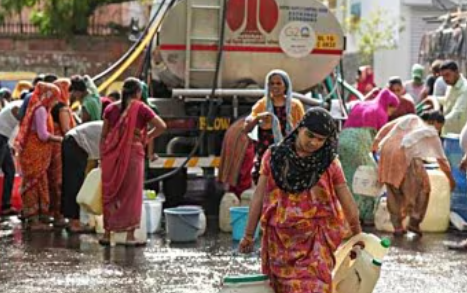New Water Pollution Penalty Rules Implemented
The Union Environment Ministry has introduced new rules for addressing water pollution violations. These rules will take effect immediately. They follow recent amendments to the Water (Prevention and Control of Pollution) Act. The amendments have shifted the focus from criminal penalties to financial ones. This change aims to streamline the enforcement process and improve compliance.
Overview of the New Rules
The new rules are titled Water (Prevention and Control of Pollution) (Manner of Holding Inquiry and Imposition of Penalty) Rules, 2024. They outline procedures for inquiries and penalties related to water pollution. The rules empower designated officers to handle complaints and adjudicate violations.
Changes in the Water Act
Earlier amendments to the Water Act decriminalized certain offences. This means that instead of facing criminal charges, violators will incur financial penalties. The amendments also allow the appointment of officers to adjudicate cases. This aims to enhance the efficiency of the enforcement process.
Authority to File Complaints
Various authorities can file complaints regarding water pollution. The Central Pollution Control Board, State Pollution Control Boards, and Pollution Control Committees are involved. They can report contraventions related to specific sections of the Water Act. These sections cover the release of industrial effluents and pollutants.
An adjudication officer is appointed to oversee the complaint process. This officer must hold a rank no lower than a joint secretary or secretary in state government. They have the authority to issue notices detailing the alleged contraventions. The officer conducts inquiries to evaluate the validity of complaints.
Inquiry Process
Upon receiving a complaint, the adjudication officer issues a notice to the accused party. The notice outlines the nature of the alleged contravention. The accused has the right to provide an explanation or defend themselves through legal representation. The inquiry aims to ensure fairness and transparency in the process.
The inquiry process must be completed within six months. This timeline begins from the issuance of the notice to the accused party. The emphasis on a timely resolution aims to enhance accountability and compliance among industries.
Impact on Industries
The new rules particularly affect industries that release pollutants. They must now navigate a more structured penalty process. Non-polluting ‘white’ category industries are exempt from prior permissions. This exemption encourages the establishment of environmentally friendly operations.
The introduction of these new rules represents an important shift in water pollution management. The focus on penalties rather than criminal charges aims to promote compliance and accountability.
Important Facts for Exams:
- Central Pollution Control Board (CPCB): CPCB is the apex organisation in India for pollution control. It establishes standards for water quality and monitors compliance with environmental regulations.
- Water (Prevention and Control of Pollution) Act: This Act was enacted in 1974. It aims to prevent and control water pollution in India. It regulates the discharge of pollutants into water bodies.
- Adjudication Officer: An adjudication officer oversees the inquiry process. They must hold a rank of joint secretary or higher. This ensures that qualified individuals handle water pollution complaints.
Month: Current Affairs - November, 2024
Category: Environment Current Affairs


